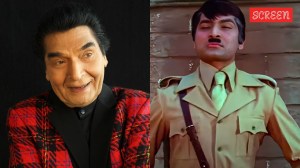Rail tickets — J-K soldiers battle to get home
JAMMU, NOV 18: Almost one-third of the Indian Army is deployed here, how about some facilities, asks a tired jawan at the Jammu railway st...

JAMMU, NOV 18: Almost one-third of the Indian Army is deployed here, how about some facilities, asks a tired jawan at the Jammu railway station. He has been waiting for hours now at a ticket window reserved for the Army.
Soldiers heading home on leave have to suffer long queues for tickets at the reservation centre of the state’s busiest and best-linked railway station. Of the four windows meant exclusively for them, at least two remain closed for most part of the year, jawans complain. There are two more at the civilian counters and at the Jammu MCO (Movement Control Organisation) office. Many of them remain closed.
On an average, 2,000 soldiers travel from Jammu station every day. On Saturdays, when most of them prefer to begin their leave, the figure crosses 5,000. “It’s a madhouse here,” says a hysterical jawan at the MCO, which organises movement of soldiers.
Problems begin the moment soldiers are dropped at the station. Those arriving well in advance stay in the transit camp. Many coming from Srinagar sometimes reach just an hour before the train’s departure because of disturbance on the highway, say jawans. “In half an hour, I have to load my luggage and cut the warrant,” says Shekhawat, a soldier, adding: “All that is fine, but at least do not treat us as machines.”
The warrant is issued by the unit for the soldier’s destination. Unless it is validated at the station, he is considered ticketless. The warrant is a record of the transaction between the Defence and Railway ministries and serves as the ticket for Defence personnel. The MoD pays for the travel later.
Soldiers claim that the special warrant exchange window is closed most of the time. They allege that if the counter is ever open, the clerks go slow, hoping that those at the queue’s end will offer bribe to get the warrant and catch the earliest train. To reach home fast rather than waste their leave at the station, soldiers sometimes buy a reservation ticket from the general counters.
“Seeing us in uniform, the clerk asks us to wait in the queue meant for the Army,” says a Nayak Subedar from Jammu. “I have been switching from one line to the other from 8 am to 5 pm,” complains Tribhuvan Singh from Howrah.
Armymen suggest empowering the Train Ticket Examiner to cut a warrant. “It is not as per rules, but the Army can write to us and we can prepare a proposal,” says Divisional Traffic Manager (Jammu) T.C. Bhardwaj.
There are queues for cutting a warrant, for reservation and finally for getting a Blank Paper Ticket meant for smaller stations. “That’s the biggest bugbear. We want a single window system,” says an officer.
Sources say the Jammu MCO is one of the busiest of the 70 offices in the country but works with just two officers and a few clerks. So, only one of the three reservation counters is operational at a time.
Railway authorities argue they have been constantly upgrading the facilities. “Earlier, people used to break windows because of problems, now they don’t,” reasons Bhardwaj. He, however, admits that the department is short of staff many times.
Preparations were made to start ticket vending with Self Printing Ticketing Machines on civilian counters, but the machines are yet to come, say sources.
At Jammu station, soldiers have been facing the queues for the last two years. Though there are Army reservation counters at Srinagar, Udhampur and Katra one more is expected at Rajouri the sheer number breaks the system.
There are Army quotas in many trains. There is even a special train from Jammu, but it’s inadequate, forcing the jawans to travel packed like sardines. Why doesn’t the jawan complain? “He is programmed not to. If he starts complaining of harsh conditions, the Army can’t function,” says a senior officer.
Jawans say discipline is now a habit. “But sometimes, we feel that too much of it is not good,” says a soldier.



- 01
- 02
- 03
- 04
- 05



























